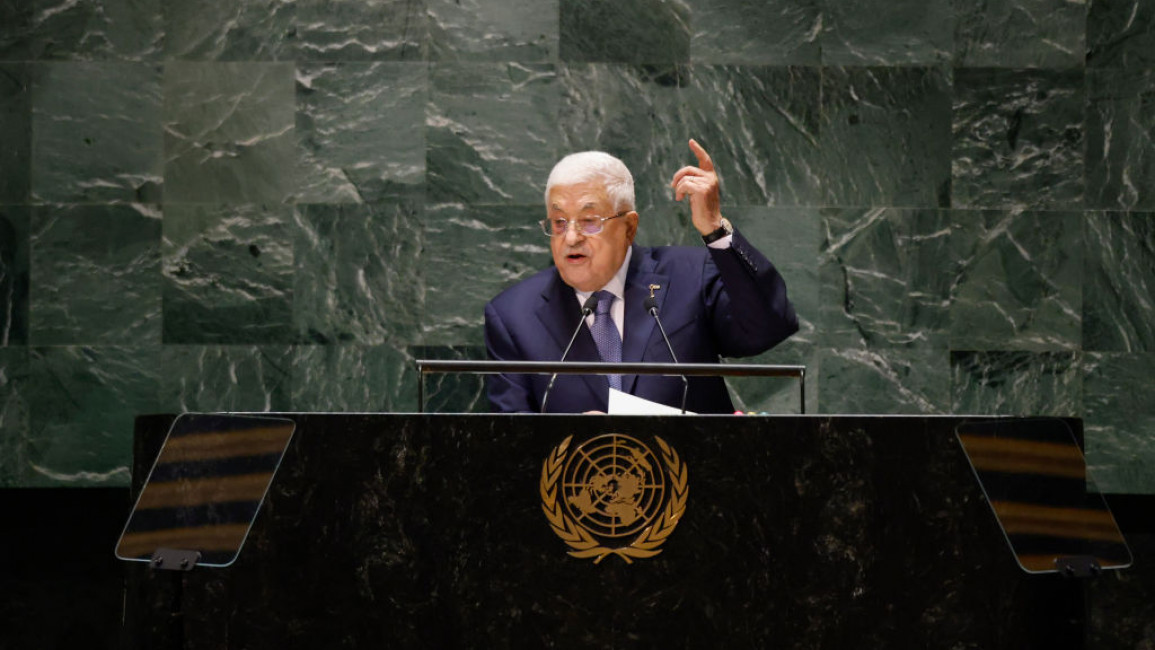Palestinians eye UN membership vote in April as US pushes back
The Palestinian delegation to the United Nations is pushing for a vote to be recognised as a full member state next month, Ambassador Riyad Mansour said Wednesday, a move opposed by the United States.
"We are seeking admission. That is our natural and legal right," Mansour said, adding that he was pushing for an April 18 vote at the Security Council.
"Everyone is saying 'two-state solution,' then what is the logic of denying us to become a member state?" he added.
Any request to become a UN member state must first pass a vote by the Security Council - where Israel's ally the United States and four other countries wield vetoes - and then be endorsed by a two-thirds majority in the General Assembly.
Palestinian President Mahmoud Abbas originally launched the statehood application in 2011. It was not considered by the Security Council, but the General Assembly the following year granted a more limited observer status to the "State of Palestine."
The Palestinian Authority submitted a letter to UN Secretary-General Antonio Guterres asking for the Security Council to reconsider on Tuesday.
Mansour's comments came as the United States earlier on Wednesday voiced its opposition for full Palestinian membership, saying it backed statehood but after negotiations with Israel.
"We support the establishment of an independent Palestinian state," State Department spokesman Matthew Miller told reporters.
"That is something that should be done through direct negotiations through the parties, something we are pursuing at this time, and not at the United Nations," he said, without explicitly saying that the United States would veto the bid if it reaches the Security Council.
Miller said that Secretary of State Antony Blinken has been actively engaged in establishing "security guarantees" for Israel as part of the groundwork for a Palestinian state.
President Joe Biden's administration has increasingly signaled support for a Palestinian state, with a reformed Palestinian Authority in charge both in the Israeli-occupied West Bank and Gaza, as it looks for a way to end Israel's ongoing war on Gaza which has killed some 33,000 people, most of them civilians.
Analysis: While mulling recognition signals a shift in Britain's tone, only meaningful pressure will determine whether it is an empty gesture or not
— The New Arab (@The_NewArab) February 7, 2024
Will Britain finally recognise Palestine as a state?
✍️ @jfentonharvey https://t.co/oshbwqLJLQ
Israeli Prime Minister Benjamin Netanyahu has for decades resisted a Palestinian state and leads a far-right government with members hostile to the Palestinian Authority, which holds limited autonomy in sections of the West Bank.
Under longstanding US legislation, the United States is required to cut off funding to UN agencies that give full membership to a Palestinian state.
The law has been applied selectively. The United States cut off funding in 2011 and later withdrew from the UN cultural and scientific agency UNESCO, but it rejoined it last year under President Joe Biden.
Robert Wood, the US deputy representative to the United Nations, said that recognition of a Palestinian state by the world body as a whole would mean "funding would be cut off to the UN system, so we're bound by US law."
"Our hope is that they don't pursue that, but that's up to them," Wood said of the Palestinians' bid.


![President Pezeshkian has denounced Israel's attacks on Lebanon [Getty]](/sites/default/files/styles/image_684x385/public/2173482924.jpeg?h=a5f2f23a&itok=q3evVtko)



 Follow the Middle East's top stories in English at The New Arab on Google News
Follow the Middle East's top stories in English at The New Arab on Google News


